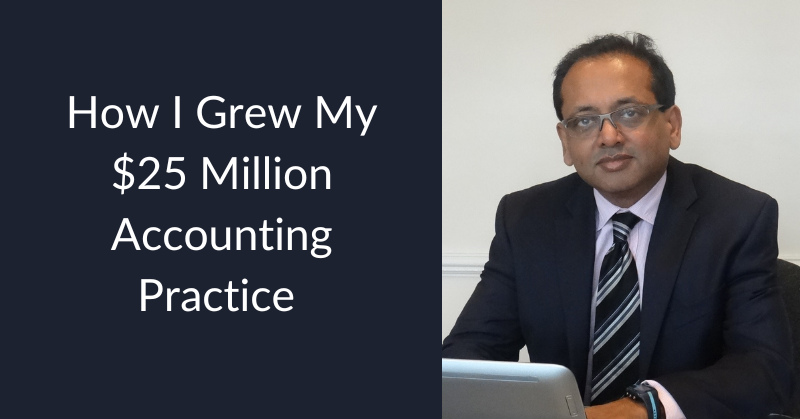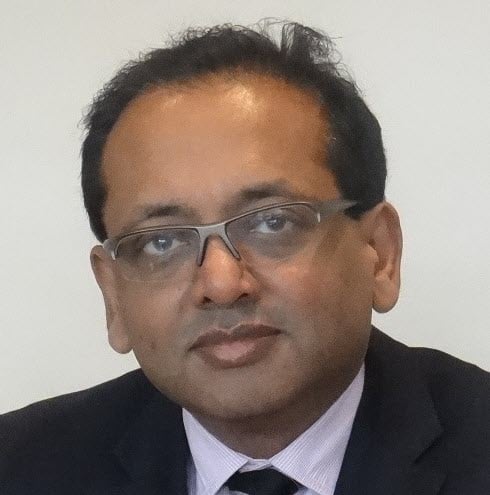When I was 43 and the family's main breadwinner, I quit the security of a corporate job to set out on my own [to start my own firm].
Fourteen years later, I have a $25 million accounting practice with 22 offices and over 800 employees.
Below, I share my story, advice for success, and why I think it’s better to "Fail Small than Fail Big."
Watch and learn
I joined the energy giant BP in 2000, the year it announced a $1.1 billion deal to outsource its business processing operations, including finance and accounting, to PricewaterhouseCoopers (PwC).
The ten-year agreement between the two global corporations gave credibility to a new business model: handing non-core business functions to a third party.
For seven years, I watched how BP drove the offshoring by partnering with outsourcing companies, e.g., PwC, Accenture, Wipro, and others
Firstly, BP (then BP Amoco) significantly reduced its headcount costs. Secondly, the most attractive benefit (in my opinion) was that BP could focus on its core operations without spending time on people management.
A gap in the market does not need to be an entirely new idea
BP was happy. Its shareholders were happy. PwC was happy. But [I thought], why should only big companies benefit from this new business method?
Arguably, smaller businesses have a greater need to focus on their core operations.
What if I could improve the survival chances of a family-run restaurant chain or a charity by removing the distraction of running their financial operations?
I created SKS Business Services to fill this gap.
Having grown up and studied in India, I had the connections and local knowledge to build a skilled overseas team that produced high-quality work at a fraction of the cost of their UK counterparts.
Monitor technology transformations
“An idea and the internet” may be a neat soundbite. Still, it also demonstrates how external forces, such as technology, the environment, or politics, can influence the timing and success of a startup.
I started SKS when broadband was becoming cheaply available to small businesses – In 2008, it was used by 82% of UK firms with under 50 employees. It was a similar story in India (in cities, at least).
This meant our clients could meaningfully connect with our overseas teams – we were video calling long before it became mainstream almost fifteen years later!
We have carefully monitored technology over the years to move ahead of our competitors. We were early adopters of cloud computing and integrated machine learning into our proprietary software long before ChatGPT made AI fashionable.
Fail fast (then never do it again!)
Working with my second cousin, Anil, a talented marketer, we built the business to a point where we could grow through acquisition.
Our model was to buy small accountancy firms and transfer their routine work, such as audit and bookkeeping, to our overseas team. This freed their UK accountants to focus on value-added work.
It was (and remains) a winning formula. Accountants at newly acquired UK practices were delighted to focus on advisory work rather than junior tasks, such as preparing accounts. They also could take on more clients.
But there was one problem we had not anticipated.
When we acquired our second accounting firm, its customers left in droves after learning their accounts were (at least partly) handled in India. At the time, outsourcing’s reputation was tainted by the inadequate overseas call centers that proliferated UK customer service in the early 2000s.
It was a complete failure of PR and communication. From then on, we took time to explain to clients that they would always have a UK-facing account manager and that our specialists in India were faster and more accurate (not to mention cheaper) than UK generalists.
As the world has globalized, the stigma around outsourcing has lifted. However, we never forget the importance of PR and communication.
Do-Learn-Do (or Fail Small)
Having achieved the now fashionable practice of Failing Big, we moved on to a more upbeat model of Do-Learn-Do or, to put it another way, Failing Small.
We built a culture of constant evaluation to identify processes that could be leaner or more efficient.
For many years, our staff used spreadsheets for accounts preparation, an inefficient way to organize data. The alternative, off-the-shelf accountancy software, did not eliminate all routine tasks, so we built our own.
Another example is staff training. It became clear that classroom learning was inefficient, expensive, and overwhelming for participants. Meanwhile, staff quickly lost focus during online training. Eventually, we developed a series of small bite-sized videos with associated assignments.
Financial data isn’t just for investors
As any business grows, it becomes easier to get investment. We’ve secured everything from bank loans to £48 million ($60.6 million) in financing from a capital solutions provider.
Whether persuading your local bank manager or a due diligence team, you need a clear overview of your company’s health and prospects. In addition to balance sheets, income statements and cash flow information, they require risk analysis, budgets, forecasts, and financial ratios and metrics.
We learned early on that having this data at our fingertips was not only useful for investors but also essential for everyday decision-making.
Build an asset, not a lifestyle business
A lifestyle business is the same as a corporate career; It pays the bills and ideally gives you disposable income for luxuries such as holidays.
An asset is a business with a scalable model and processes. It pays the bills, buys luxuries, and provides a nest egg when you are ready to retire or sell.
In the early years of SKS, I worked from home. A wonderful side effect of this financial necessity was that I was present for my children when they were young.
I will be speaking in more depth about my business growth at Scaling New Heights on June 17, 2024. Please get in touch if you have any topics you would like me to cover or discuss in person.
Sponsored Content: This article is generously brought to you by one of our valued sponsors. Their support enables us to continue delivering expert insights and the latest industry trends to our dedicated community of accounting professionals.
.png?width=150&height=63&name=TWRlogo-regmark_blueblack%20(1).png)
.png)










Do you have questions about this article? Email us and let us know > info@woodard.com
Comments: